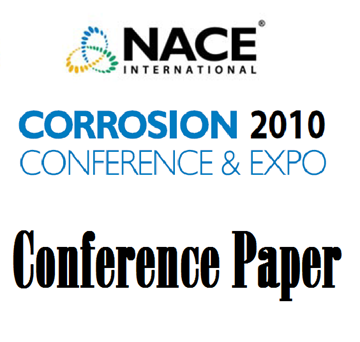Search
Corrosion Behavior of UNS N08935 In Refinery Sour Water Services
Also Purchased
10349 Prediction and Assessment of Ammonium Bisulfide Corrosion Under Refinery Sour Water Service Conditions-Part 2
Product Number:
51300-10349-SG
ISBN:
10349 2010 CP
Publication Date:
2010
$20.00
Cold Work Qualification Of UNS N08935 For Use In Chloride And Sour Environment
Product Number:
51322-18080-SG
Publication Date:
2022
$20.00
05569 The Application of Process Analyses to Prevent Corrosion in Sour Water Stripper Overhead Cooler Tubes
Product Number:
51300-05569-SG
ISBN:
05569 2005 CP
$20.00
Recently viewed




